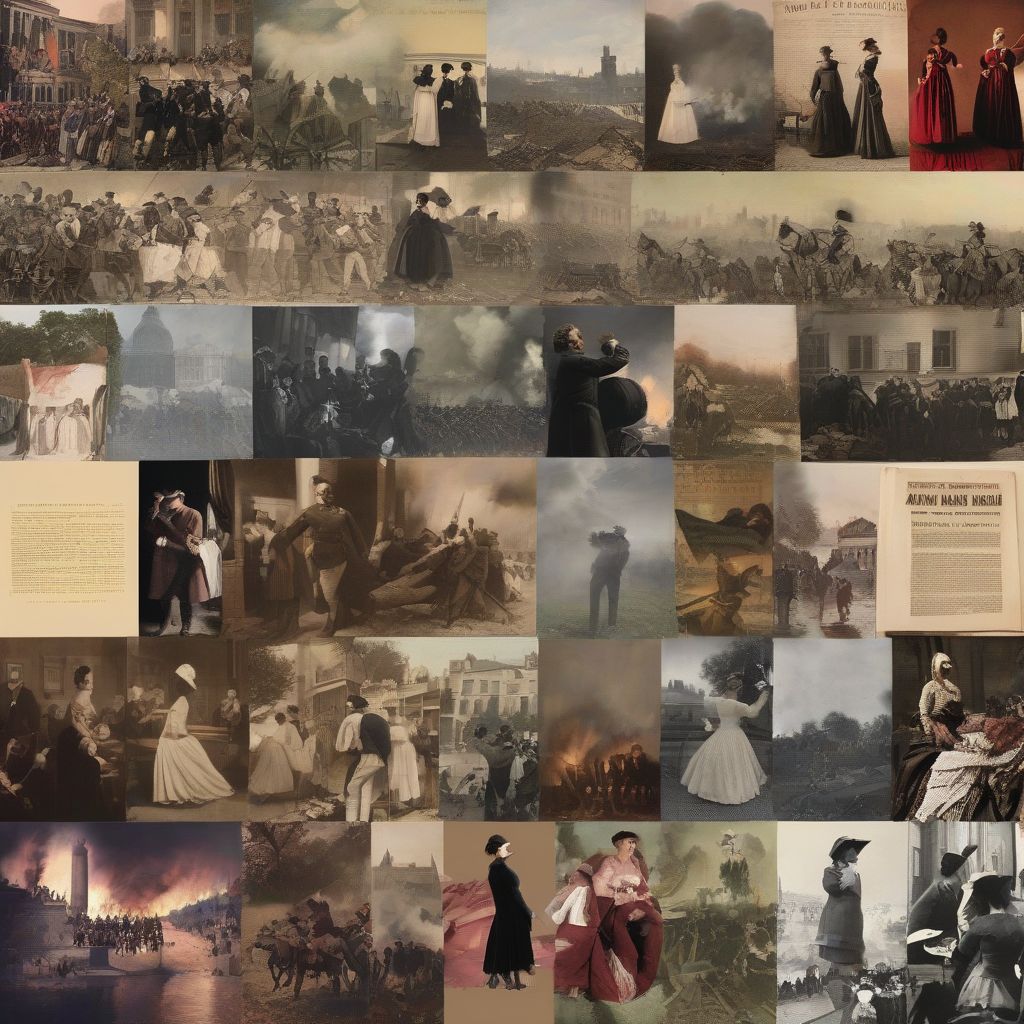Have you ever found yourself engrossed in a classic novel, marveling at how the author captures the essence of a bygone era? The French Revolution’s turmoil in “A Tale of Two Cities,” the societal upheaval of Victorian England in “Jane Eyre,” or the bleak realities of post-World War I Europe in “The Great Gatsby” – these masterpieces transport us through time, offering glimpses into the past. But have you ever stopped to consider how these historical events actively shaped the very stories we cherish?
History: The Unseen Hand Shaping Literary Masterpieces
Classic literature isn’t merely a reflection of the past; it’s a product of it. Historical events act as a crucible, shaping the themes, characters, and narratives that have captivated readers for generations. Let’s delve into how this intricate dance between history and literature plays out:
Social and Political Upheavals: Fueling Literary Themes
Periods of intense change often birth powerful literary works. The French Revolution, with its ideals of liberty, equality, and fraternity, had a profound impact on Charles Dickens. “A Tale of Two Cities” vividly portrays the revolution’s chaos and its impact on ordinary lives. Similarly, the Industrial Revolution’s societal transformations, with its stark contrasts between wealth and poverty, fueled the social commentary found in novels like “Oliver Twist” and “Hard Times.”
War and Conflict: Shaping Characters and Worldviews
From the Trojan War in Homer’s “The Iliad” to the horrors of World War I in Erich Maria Remarque’s “All Quiet on the Western Front,” conflicts have provided fertile ground for literary exploration. These events shape characters, exposing them to the brutalities of war and forcing them to confront their own mortality and morality. The psychological toll of conflict, the loss of innocence, and the questioning of patriotism are recurring themes often rooted in the authors’ own wartime experiences.
Cultural and Intellectual Movements: Giving Rise to Literary Genres
Consider the Romantic era, a reaction against the Enlightenment’s emphasis on reason. This period, marked by a celebration of emotion, individualism, and the sublime, gave rise to Gothic novels like Mary Shelley’s “Frankenstein” and powerful poetic voices like William Wordsworth and Samuel Taylor Coleridge. Similarly, the Harlem Renaissance, a blossoming of African American art and culture in the 1920s, produced literary giants like Langston Hughes and Zora Neale Hurston, who gave voice to the Black experience in America.
Examples of History’s Enduring Mark on Literature
1. “Gone with the Wind” and the American Civil War
Margaret Mitchell’s epic novel, set against the backdrop of the American Civil War and Reconstruction, showcases how historical events impact personal lives. The novel explores themes of love, loss, and resilience as characters navigate the upheaval of war and its aftermath.
2. “Things Fall Apart” and Colonialism
Chinua Achebe’s masterpiece delves into the devastating impact of British colonialism on Igbo society in Nigeria. Through the protagonist Okonkwo’s tragic fate, the novel highlights the clash of cultures, the erosion of traditional values, and the struggle for identity under colonial rule.
3. “The Handmaid’s Tale” and Feminist Concerns
Margaret Atwood’s dystopian novel, while fictional, draws inspiration from historical events like the Salem Witch Trials and totalitarian regimes. The novel explores themes of female subjugation, reproductive rights, and resistance against oppressive systems, resonating powerfully with contemporary feminist concerns.
 Historical Events in Literature
Historical Events in Literature
Understanding the Past to Illuminate the Present
The beauty of exploring the role of historical events in classic literature lies in its ability to deepen our understanding of both the past and the present. By analyzing how authors grapple with historical events, we gain insights into the social, political, and cultural forces that shaped their world and continue to influence our own. Themes of power, oppression, love, loss, and the human condition transcend time, offering timeless reflections on what it means to be human.
Engaging with the Past, Enriching the Present
So, the next time you pick up a classic novel, remember that you’re not just reading a story; you’re engaging with a piece of history. Pay attention to the historical context, the social commentary, and the author’s perspective. By understanding the past, we gain a deeper appreciation for the enduring power of literature and its ability to illuminate the human experience across generations.
[amazon bestseller=”Classic Literature”]
Let us know in the comments below which classic novels have resonated with you and how their historical context enhanced your reading experience! We’d love to hear your thoughts.
